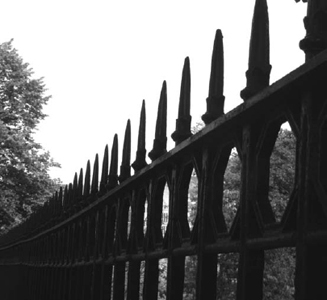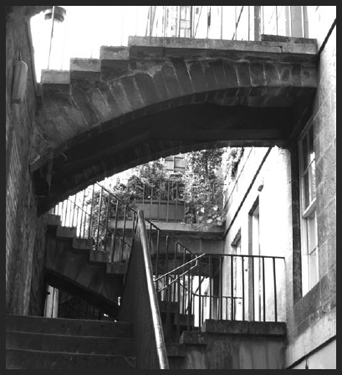Let It Bleed (41 page)
Authors: Ian Rankin
What do you think about Rebus as a character? If you have read several or more novels from the series, discuss how his character is developed.

If Rebus has a problem with notions of ‘pecking order’ and the idea of authority generally, what does it say about him that he chose careers in hierarchical institutions such as the Army and then the police?

How does Rebus relate to women: as lovers, flirtations, family members and colleagues?

Do the flashes of gallows humour as often shown by the pathologists but sometimes also in Rebus’s own comments increase or dissipate narrative tension? Does Rebus use black comedy for the same reasons the pathologists do?

Do Rebus’s personal vulnerabilities make him understanding of the frailties of others?

How does the characterisation of Rebus compare to other long-standing popular detectives from British authors such as Holmes, Poirot, Morse or Dalgleish? And are there more similarities or differences between them?

 LET IT BLEED
LET IT BLEEDTwo teenagers in a Cortina lead the police a merry dance one snowy night, but Rebus is shocked when they fall or, more probably leap to their deaths from the Forth Road Bridge right before his eyes. And immediately he knows that this is going to make looking into the disappearance of the Lord Provost’s daughter, 17-year-old Kirstie Kennedy, impossible to keep quiet. Has she been kidnapped, or is Rebus right in thinking it’s all a hoax?
Rebus discovers he has a new boss and that she is former lover Gill Templer, but any thoughts of how this might pan out are pushed aside by the grisly suicide of an unknown constituent in front of Councillor Tom Gillespie, who had previously been most preoccupied with the thought of the upcoming council elections only seven weeks away. Rebus finds shady business ventures and evidence of backhanders, but soon he’s ordered to cool his heels elsewhere, or else his blundering about may end up costing much-needed Scottish jobs. Meanwhile, a rash action from daughter Sammy means she becomes implicated in the investigation.
Rebus’s response to this personal
zugzwang
? To rub shoulders with those in high places and stomp on their toes, while trying to ensure that his jousting with DI Flower goes his way. But when Rebus unravels a web of corruption that reaches to the highest level, he finds
himself faced with a moral dilemma to which he just doesn’t feel equal.
Casting a cynical eye on Scottish Enterprise – or should this be Scottish enterprise, Rebus jokes – Ian Rankin offers his most revealing and intimate portrait yet of Rebus, allowing the reader a further insight into what makes him tick.
 Discussion points for
Discussion points forLet It Bleed
‘
Rebus looked out of the window. It had started snowing. “Weather like this,” he said, “there’s never much trouble in Edinburgh, trust me.”
’ To what extent should the reader trust Rebus?

The silent actions of the two youths who died suggest to Rebus ‘
something fatalistic; something agreed between them
’. What does Rebus feel in response? Could it be said that he’s so interested in these and other suicides generally because, aside from the very different motivations of murderers from suicides, he plays with his own well-being through the precarious way he looks after himself? Has he ever contemplated suicide himself?

Referring to the Rolling Stones, Rebus thinks, ‘
What a shambles the band were, yet sometimes they could get it so right that it hurt
.’ Could the same be said of Rebus’s police work?
